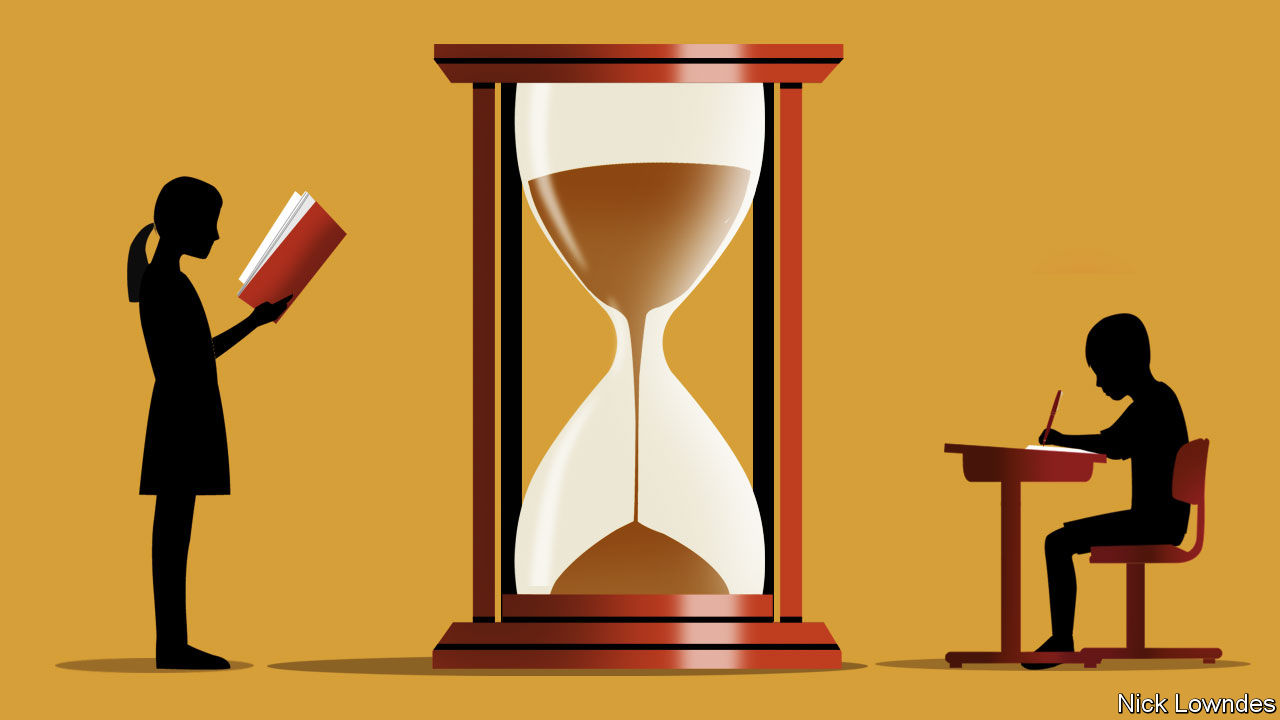标签:reason article write input res produce 技术分享 mat learning
New evidence suggests a drop-off in results after the age of 17

THOSE who want to learn a foreign language, or want their children to, often feel they are racing against the clock. People seem to get worse at languages as they age. Children often learn their first without any instruction, and can easily become multilingual with the right exposure. But the older people get, the harder it seems to be. Witness the rough edges on the grammar of many immigrants even after many years in their new countries.
Scientists mostly agree that children are better language learners, but do not know why. Some posit biological factors. Is it because young brains have an extreme kind of plasticity? Or, as Steven Pinker, a Harvard psychologist, argues, an instinct for language-learning specifically, which fades as the brain ages and (in evolutionary terms) is no longer needed? Others think children have special environments and incentives, not more conducive brains. They have a strong motivation to communicate with caregivers and imitate peers, and are not afraid of making mistakes in the way adults are.
Some believe any “critical period” may only apply to the sounds of a foreign tongue. Adults struggle with accents: eight decades after immigrating to America and four after serving as secretary of state, Henry Kissinger still sounds fresh off the boat from Fürth—in what is nevertheless elaborately accurate English. (An alternative explanation, runs a joke about Mr Kissinger, is that he never listens.)
But grammar is different, and some researchers have reckoned that adults, with their greater reasoning powers, are not really at a disadvantage relative to children. One study found that when adults and children are exposed to the same teaching materials for a new language for several months, the adults actually do better. Most such research has had to rely on small numbers of subjects, given the difficulty of recruiting them; it is hard to know how meaningful the results are.
Now a large new study led by Joshua Hartshorne of Boston College (with Mr Pinker and Joshua Tenenbaum as co-authors) has buttressed the critical-period hypothesis. The study ingeniously recruited 670,000 online test-takers by framing the exercise as a quiz that would guess the participants’ native language or dialect. This made it a viral hit. The real point was to test English-learners’ knowledge of tricky bits of grammar, and to see how this correlates with the age at which their studies began.
Do younger beginners do better because their earlier start gave them more learning time, or because they learned faster in early years? It can be hard to tease apart these two questions. But testing a huge amount of data against a number of possible learning curves allowed Mr Hartshorne to do precisely that. Many previous researchers had posited a drop-off at around puberty. The new study found it to be rather later, just after 17.
Despite that later cut-off, learners must begin at around ten if they are to get to near-native fluency. If they start at, say, 14, they cannot accumulate enough expertise in the critical period. Unfortunately, 14 or so is precisely when many students, especially in America, are first introduced to a new language. (Even worse, this is an age when children are acutely sensitive to embarrassment in front of peers.)
Children who start at five don’t do noticeably better than those who start at ten over their lifetimes. But there is still reason to begin in the first years of school, as in Denmark and Sweden. Because mastery takes a long time—perhaps 30 years until improvement ceases—those who begin at five and are obliged to read and write English at university will by then have made much more progress than those who took the plunge at ten, even if their level is roughly the same by 40.
The existence of the critical period is not a reason for anyone 11 or older to give up. Some people remain excellent language students into adulthood. And Mr Hartshorne tested some truly subtle features of grammar that take years to master. A language learned even to a lower level can still be extraordinarily useful at work or enjoyable while travelling.
But for policymakers, the implication is clear. Earlier is better. Students outside the English-speaking world will eventually face English in the classroom or at work: they’ll have a better shot if they start younger. As for the Anglophone countries, getting foreign languages into the tender years is a hard sell. Many bureaucrats can hardly see past reading and maths. That is a mistake for many reasons. This study demonstrates one of them.
This article appeared in the Books and arts section of the print edition under the headline "Out of the mouths of babes"
标签:reason article write input res produce 技术分享 mat learning
原文地址:https://www.cnblogs.com/wanghui626/p/9210796.html